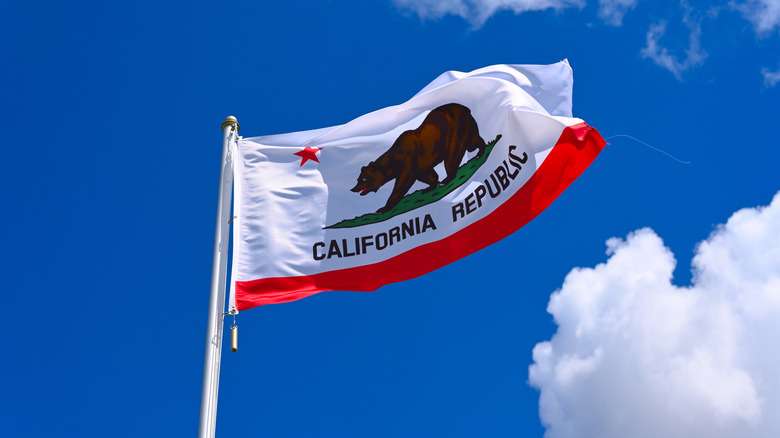The Unexpected Value Of $100 If You Live In California
A $100 bill is worth $100 anywhere in the United States, but its purchasing power varies greatly by state. For example, in South Carolina, $100 is equivalent to having $106.40. However, in California, the situation is drastically different. In the Golden State, $100 is akin to just $87.42 in purchasing power, according to GOBankingRates.
Purchasing power is the value of currency in terms of the amount of goods it can buy, and it's affected by factors such as inflation and income. For example, we've all experienced grocery prices increases over the past few years and have noticed that $100 buys fewer and fewer items each year; that's an example of purchasing power declining. The principle applies across the nation (and globally), as in the more expensive states, like California, your money won't stretch as far as it does in America's cheapest regions, such as the Quad Cities in Iowa and Illinois. For California residents, the lower purchasing power reflects the state's steep housing costs and elevated prices of everyday goods.
Here is why $100 has less value in California
California residents earn some of the highest wages in the country, with the median household income sitting at $96,334, according to GoBankingRates. That's over $12,000 higher than the national median household income. However, those larger paychecks do not stretch once the expenses are factored in. One of the biggest culprits for the state's high cost of living is housing. According to Bankrate, the median home price in the state is $886,100, or more than double the U.S. median home price. The state is also one of the most expensive to rent in, with an average rent of $2,634 per month, according to RentCafe.
Everyday essentials are also more expensive in California. According to the U.S. Census Bureau Pulse Survey, California residents spend roughly $298 a week on groceries, or $1,190 per month. Meanwhile, groceries cost the average American household about $270 per week, or $1,080 monthly. Other expenses like utilities, healthcare, and transportation are also more expensive than the national average. Together, the higher costs chip away at California's high salaries, leaving less disposable income in the hands of residents. So, while a $100 bill is worth the same across the country, it simply buys you less in the Golden State.

